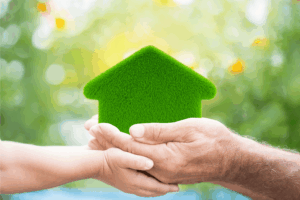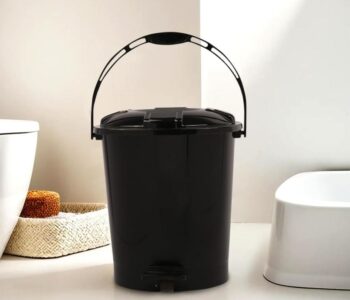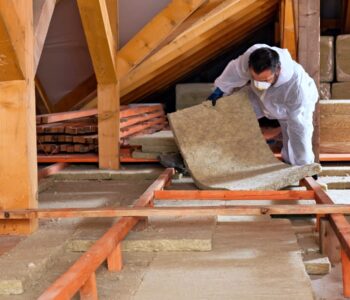The Environmental Impact of HVAC Systems and How to Reduce It

Heating, ventilation, and air conditioning (HVAC) systems are essential for maintaining comfort in homes and businesses, especially in areas with extreme temperatures. However, HVAC systems also have a significant environmental impact. From energy consumption to greenhouse gas emissions, the effects of HVAC on the environment cannot be ignored. At Go Green Heating & Cooling, we understand the importance of balancing comfort with sustainability, and we’re committed to helping our customers reduce their environmental footprint while keeping their spaces comfortable.
Understanding the Environmental Impact of HVAC Systems
HVAC systems consume a substantial amount of energy, accounting for nearly 48% of energy use in a typical U.S. home. This high demand for electricity often means increased reliance on fossil fuels, contributing to carbon dioxide (CO2) emissions and climate change. Additionally, older HVAC units can leak refrigerants that are potent greenhouse gases, further harming the environment.
Energy Consumption and Carbon Emissions
Most HVAC systems run on electricity generated from coal, natural gas, or oil, all of which produce CO2 and other pollutants. The more energy an HVAC system uses, the larger the carbon footprint of the household or business. Cooling systems, especially air conditioners, require a lot of electricity during summer months, while heating systems consume significant energy in winter.
Refrigerants and Their Environmental Effects
Refrigerants such as chlorofluorocarbons (CFCs) and hydrofluorocarbons (HFCs) used in HVAC systems have been known to damage the ozone layer and contribute to global warming. Although many newer systems use more environmentally friendly refrigerants, leaks from older equipment can still pose a serious environmental risk.
Waste and Resource Use
Beyond energy, HVAC systems contribute to waste through the disposal of old units, filters, and parts. Manufacturing HVAC equipment also consumes natural resources and produces emissions. Proper disposal and recycling of HVAC components can help reduce environmental damage.
How to Reduce the Environmental Impact of HVAC Systems
Reducing the environmental footprint of HVAC systems requires a multi-faceted approach. At Go Green Heating & Cooling, we focus on solutions that improve efficiency, use greener technologies, and promote responsible usage.
Upgrade to Energy-Efficient HVAC Systems
One of the most effective ways to reduce environmental impact is by upgrading to high-efficiency HVAC units. Systems with ENERGY STAR certification consume significantly less electricity than older models, leading to lower emissions and utility bills. Investing in energy-efficient heating and cooling systems not only benefits the environment but also your wallet over time.
Regular Maintenance and Tune-Ups
Well-maintained HVAC systems operate more efficiently, reducing energy consumption and preventing refrigerant leaks. Regular tune-ups by professionals ensure that components such as filters, coils, and fans are clean and functioning properly. Maintenance also helps identify potential issues early, avoiding costly and environmentally harmful breakdowns.
Use Environmentally Friendly Refrigerants
Switching to HVAC systems that use eco-friendly refrigerants like R-410A or newer options with lower global warming potential can dramatically reduce environmental harm. If your current system uses outdated refrigerants, consider having it retrofitted or replaced with greener alternatives.
Improve Home Insulation and Air Sealing
A properly insulated and sealed building reduces the load on HVAC systems. When heat or cool air escapes, HVAC units work harder to maintain desired temperatures, increasing energy consumption. Simple upgrades like sealing leaks around windows, doors, and ductwork can improve efficiency and reduce environmental impact.
Smart Thermostats and Zoning
Smart thermostats help optimize HVAC use by adjusting temperatures based on occupancy and time of day. This technology reduces unnecessary heating and cooling, cutting energy use. Additionally, HVAC zoning allows you to heat or cool only specific areas, saving energy and increasing comfort.
Consider Renewable Energy Sources
Integrating renewable energy sources such as solar panels with your HVAC system can significantly reduce your carbon footprint. Solar-powered HVAC systems or hybrid setups that combine traditional energy with renewables are becoming more accessible and affordable.
Proper Disposal and Recycling of HVAC Equipment
When replacing HVAC systems, it’s vital to dispose of old units responsibly. Many components, including metals and refrigerants, can be recycled or safely handled to prevent environmental contamination. Professional HVAC companies like Go Green Heating & Cooling follow strict environmental guidelines to ensure proper disposal.
Additional Tips for Environmentally Friendly HVAC Use
- Use ceiling fans to improve air circulation, allowing you to raise thermostat settings in summer or lower them in winter without sacrificing comfort.
- Close vents and doors in unused rooms to prevent unnecessary heating or cooling.
- Set thermostats wisely — around 78°F in summer and 68°F in winter saves energy while maintaining comfort.
- Install window treatments to block heat gain during hot months or retain heat during cold months.
Choose Go Green Heating & Cooling for Your HVAC Needs
At Go Green Heating & Cooling, we specialize in providing environmentally responsible HVAC services to our customers. Serving the local community, our experts are dedicated to helping you reduce your energy consumption and environmental footprint while maximizing comfort. Whether you need a new energy-efficient HVAC installation, routine maintenance, or expert repairs, our team is ready to assist.
We are proud to offer personalized solutions tailored to your home or business needs, focusing on sustainable technologies and practices. Contact us today at (702) 766-1166 to schedule a consultation or service appointment. For more information, visit our website at gogreenvegas and discover how we can help you make your HVAC system greener and more efficient.









